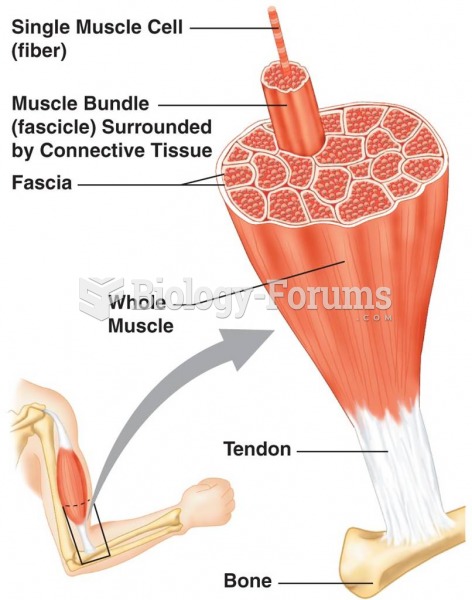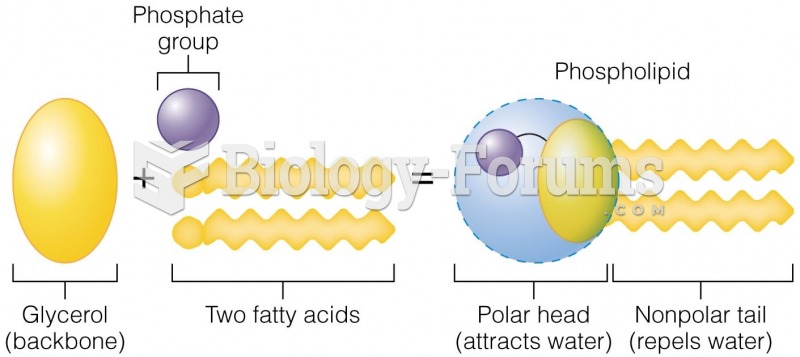|
|
|
The training of an anesthesiologist typically requires four years of college, 4 years of medical school, 1 year of internship, and 3 years of residency.
Egg cells are about the size of a grain of sand. They are formed inside of a female's ovaries before she is even born.
Eat fiber! A diet high in fiber can help lower cholesterol levels by as much as 10%.
After a vasectomy, it takes about 12 ejaculations to clear out sperm that were already beyond the blocked area.
As many as 28% of hospitalized patients requiring mechanical ventilators to help them breathe (for more than 48 hours) will develop ventilator-associated pneumonia. Current therapy involves intravenous antibiotics, but new antibiotics that can be inhaled (and more directly treat the infection) are being developed.







